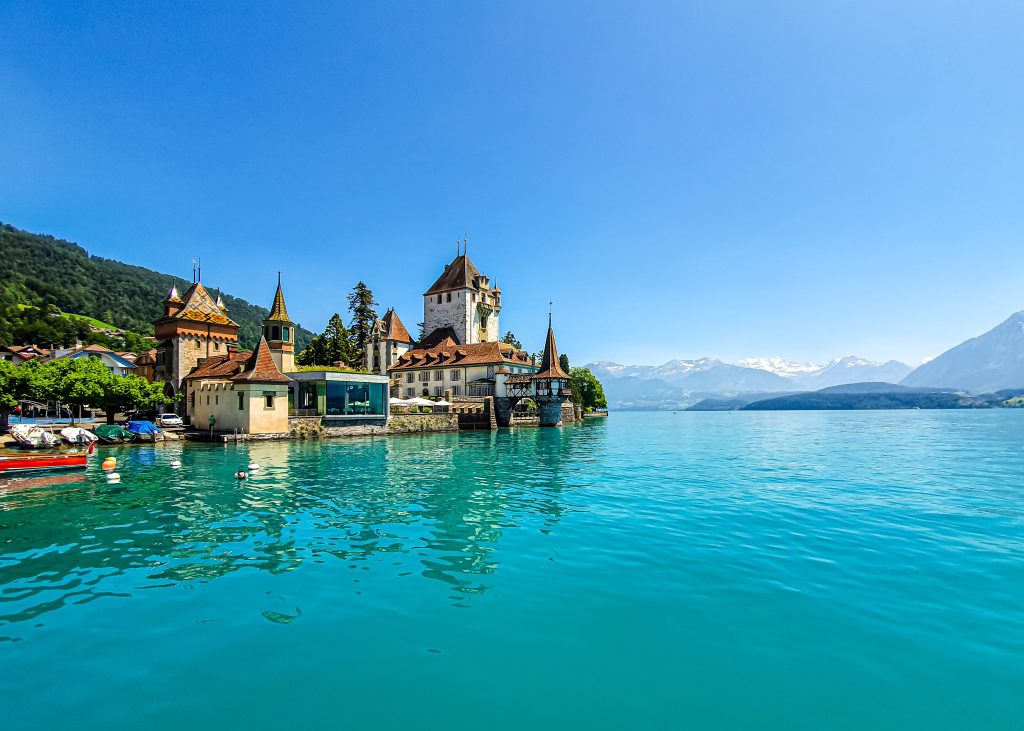History and Geography of Switzerland: Explore the Origins and Features of this Alpine Jewel

Switzerland is a landlocked country located in the heart of Europe. It is bordered by Germany to the north, Austria and Liechtenstein to the east, Italy to the south, and France to the west. Despite its small size, Switzerland is home to over 8 million people and has a thriving economy. Switzerland is known for its stunning natural beauty, including the Swiss Alps, as well as its rich cultural heritage.
Understanding the history and geography of Switzerland is essential to understanding the country’s unique culture and society. Let’s take a closer look at the origins of Switzerland.
- The Origins of Switzerland
Switzerland has a long and complex history. The earliest settlements in Switzerland date back to the Stone Age, and the region has been inhabited by various tribes and peoples over the centuries.
In the Middle Ages, the region that is now Switzerland was divided into a number of small feudal states. However, these states were threatened by outside forces, including the powerful Habsburg dynasty. In the late 13th century, the Swiss formed the Helvetic Confederacy to protect themselves from external threats. This confederacy would eventually become the modern-day Swiss state.
- The Geography of Switzerland
Switzerland is a small country, but it is home to a diverse range of geographic features. The most prominent of these features is the Swiss Alps, which cover over 60% of the country’s land area. The Swiss Alps are home to some of the world’s most famous peaks, including the Matterhorn and the Eiger.
The Swiss Plateau is another important geographic feature. It is the center of Swiss population and industry and is home to the cities of Zurich, Geneva, and Bern.
Switzerland is also home to a number of lakes and rivers, including Lake Geneva, Lake Zurich, and the Rhine River.
- Swiss Culture and Society
Swiss culture and society have been shaped by the country’s unique geography and history. The Swiss are known for their love of the outdoors, and outdoor activities such as skiing and hiking are popular pastimes.
Switzerland is also known for its unique political system. The country is a federal republic with a direct democracy. This means that citizens have a direct say in the country’s decision-making process through a system of referendums and initiatives.
Language is another important aspect of Swiss culture and society. Switzerland has four official languages: German, French, Italian, and Romansh. The language spoken in a particular region often reflects that region’s cultural heritage.
- Famous Swiss Figures and Contributions
Switzerland has produced many famous figures over the centuries. One of the most well-known is William Tell, a folk hero who is said to have led a rebellion against the Habsburg dynasty in the early 14th century.
Switzerland has also made significant contributions to science, art, and literature. For example, Albert Einstein, the famous physicist, lived in Switzerland for many years. Swiss artists such as Paul Klee and Alberto Giacometti are also renowned for their contributions to the world of art.
- Modern Switzerland
In recent years, Switzerland has maintained a strong economy and played an important role in international affairs. The country is known for its financial sector, which is home to some of the world’s largest banks and corporations. Switzerland is also a member of several international organizations, including the United Nations, the World Trade Organization, and the International Monetary Fund.
Swiss society and politics have undergone significant changes in recent years. The country has become more diverse, with an increasing number of immigrants and foreign workers. Women have also gained greater rights and representation in government and business.
One notable development in Swiss politics was the adoption of a new constitution in 1999, which increased the powers of the federal government and established new protections for individual rights. The constitution also recognized the cultural diversity of Switzerland, which is reflected in the country’s various languages, traditions, and customs.
Looking to the future, Switzerland faces several challenges, including maintaining its economic competitiveness, addressing climate change, and managing its relationship with the European Union. However, the country is well-positioned to tackle these challenges and continue to thrive as a prosperous and democratic nation.
Conclusion
In conclusion, Switzerland’s history and geography have shaped it into the unique and fascinating country that it is today. From its early settlements to its modern economy and diverse society, Switzerland has a rich and complex story that is important to understand. By examining Switzerland’s past and present, we can gain insights into the country’s strengths and challenges and appreciate the beauty and diversity of this Alpine jewel.
